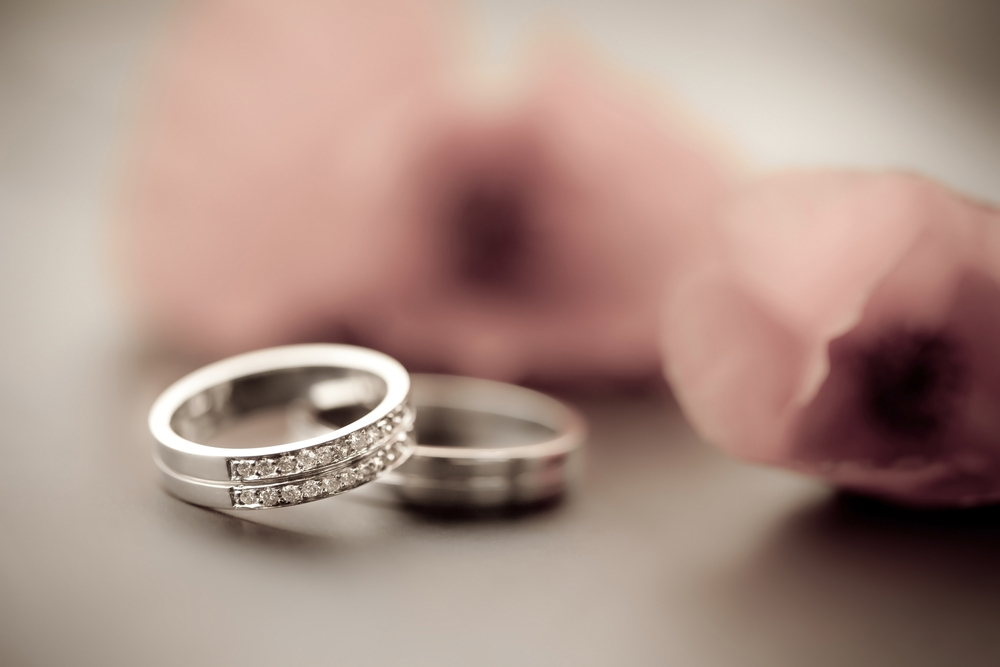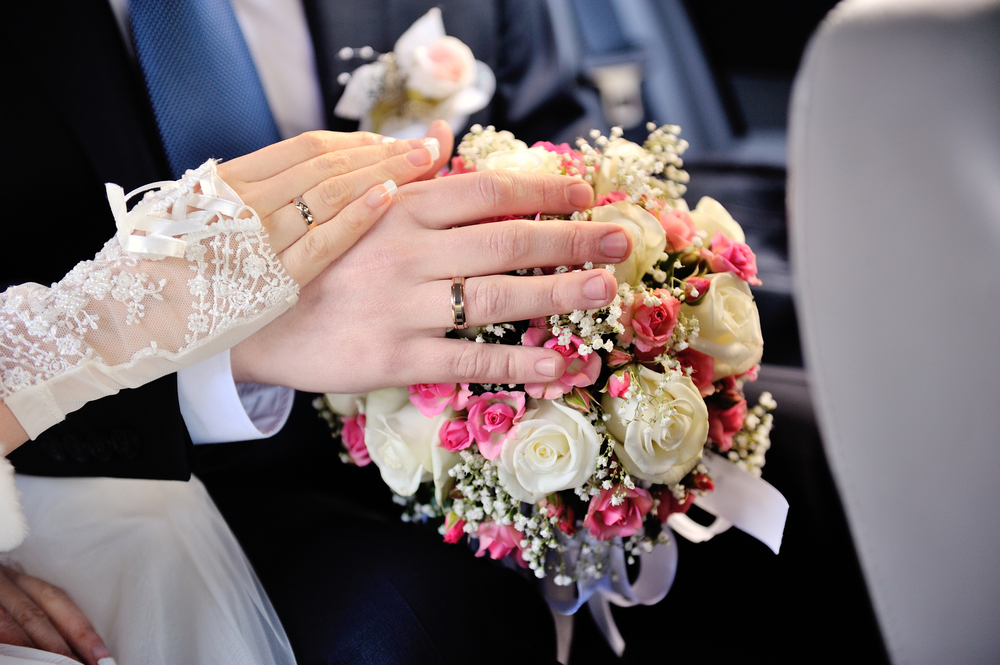The elegance of your wedding ring depends heavily on the type of metal you choose for it. While you’re looking at metals based on their striking or polished appearance, spare a thought for practical considerations such as strength and resilience. Here are some things to take into account when choosing the right metal.

Make it Last Like Your Love
You want to choose metals that are going to be durable—this isn’t just any piece of jewellery, after all.
- Platinum has a long lifespan and is highly resilient. Although it’s expensive, it is a dense metal that is durable and luxurious. Palladium is part of the platinum family and also scores highly on the longevity scale.
- If you want gold but you work with your hands a lot, lower karat gold is a wiser choice since gold of higher karats tends to be softer and more prone to scratches.
- For men’s wedding bands, platinum is a popular choice because it has a rugged appearance while being resistant to damage. Although it’s very strong, it’s equally weightless.
- Since it is soft in nature, silver can easily suffer scratches or damage so it’s not a good choice for wedding or engagement rings. Therefore, although it might be kinder to your budget, it’s best reserved for jewellery that isn’t` worn every day.
Consider the Metal of Your Engagement Ring
Matching the metal of your engagement and wedding rings is a sophisticated and elegant choice. If you like to mix metals, having rings of similar style or design is advised to unite your wedding pieces.
When experimenting with metals, bear this in mind: avoid the impulse to team up a platinum ring with a gold one. Platinum can scuff and dent gold if it keeps rubbing against it, so keep these metals away from each other!
Avoid Allergies
It’s important to choose hypoallergenic metals that won’t irritate the skin. This is especially vital if your skin is sensitive or you have a history of skin allergies. Hypoallergenic jewellery is made out of pure metals so choosing these prevents allergies from developing. Pure metals include palladium, platinum and sterling silver. Gold pieces that are higher than 14 karats are hypoallergenic because they don’t contain allergens such as nickel.
If you have allergies such as contact dermatitis, avoid rose gold as it often contains copper. If you like white gold, replace it with palladium— it’s hypoallergenic and doesn’t contain nickel or rhodium.
Gold: The Classic Choice
Gold is always a winner when it comes to beautiful wedding rings, so choose the yellow variety if you want a classic or vintage look. On the other hand, white gold can give you a nice silver finish without being as expensive as platinum. If you want a warm and unique option, rose gold always adds a special touch. Rose gold contains copper alloy and the more copper, the more pink your ring will be.

After-Care Tips
By knowing what’s entailed in the after-care of different metals before your ring purchase, you’ll be better prepared to keep your ring in perfect condition. This could also influence your purchasing decision.
- White gold is often coated in rhodium to create its sparkling white finish. It needs to be re-dipped every few years to maintain its shine and whiteness.
- Looking after platinum is a little easier because its gray color is natural. It does lose its shine after a while so it needs to be polished by a professional when that happens.
- To care for yellow and rose gold, you should wash them occasionally in warm water with gentle soap in it and then dry them off with a cloth made of soft cotton. This can also be beneficial when cleaning palladium and titanium rings.
There are quite a few metals to choose for your wedding rings, but opting for the most durable makes the most sense. You will be wearing your ring every day and you want it to remain a gorgeous symbol of your love.















